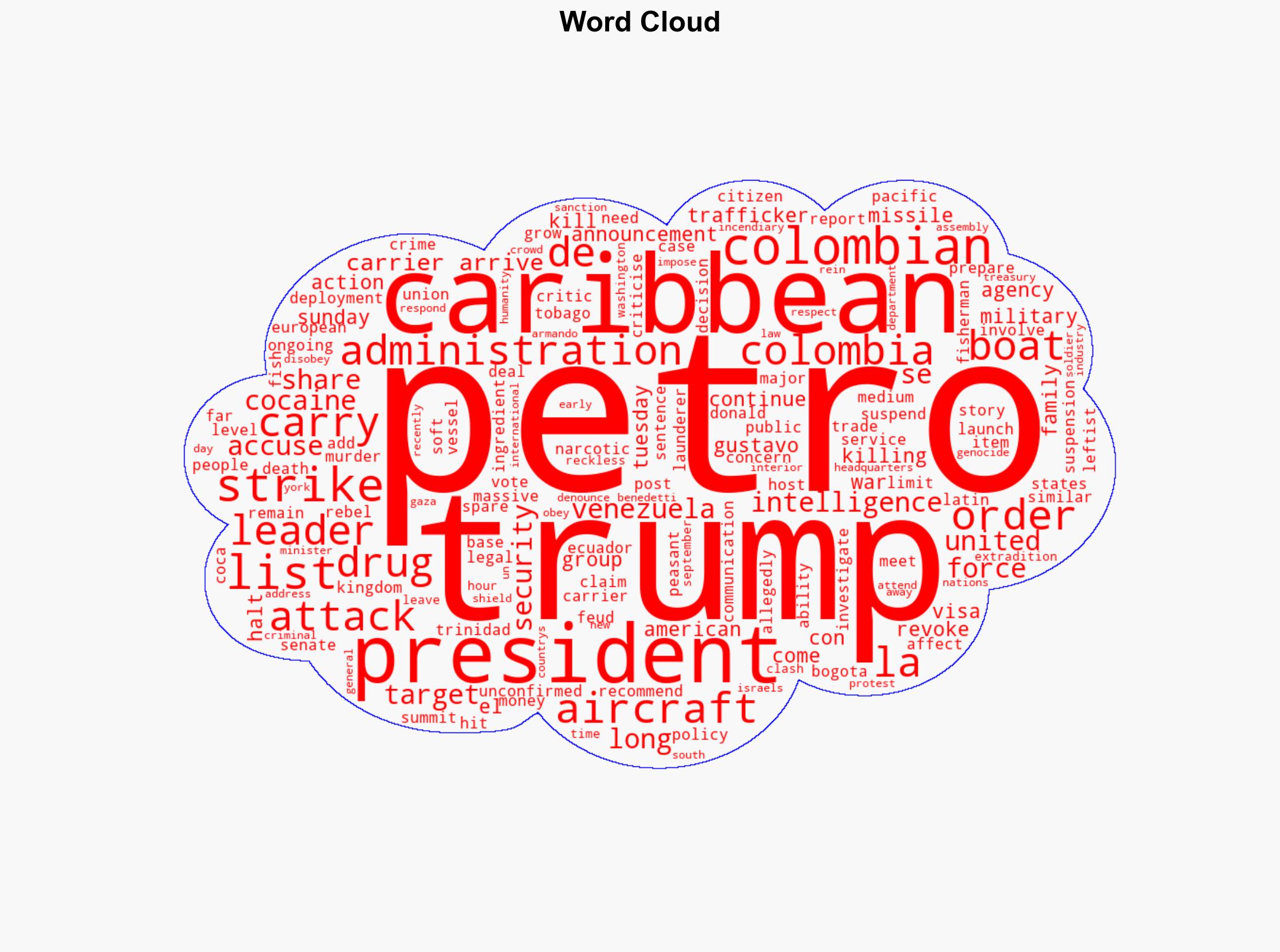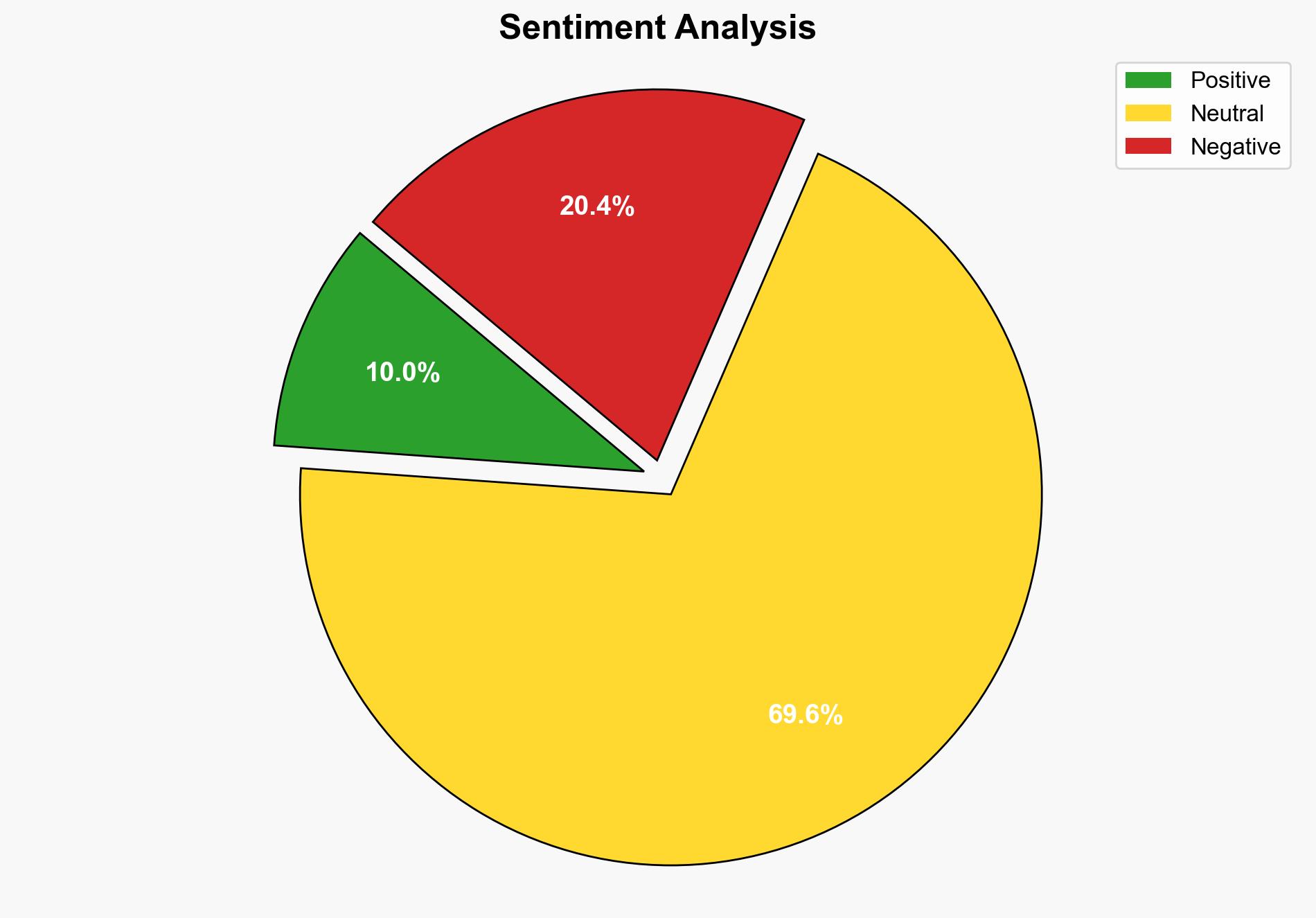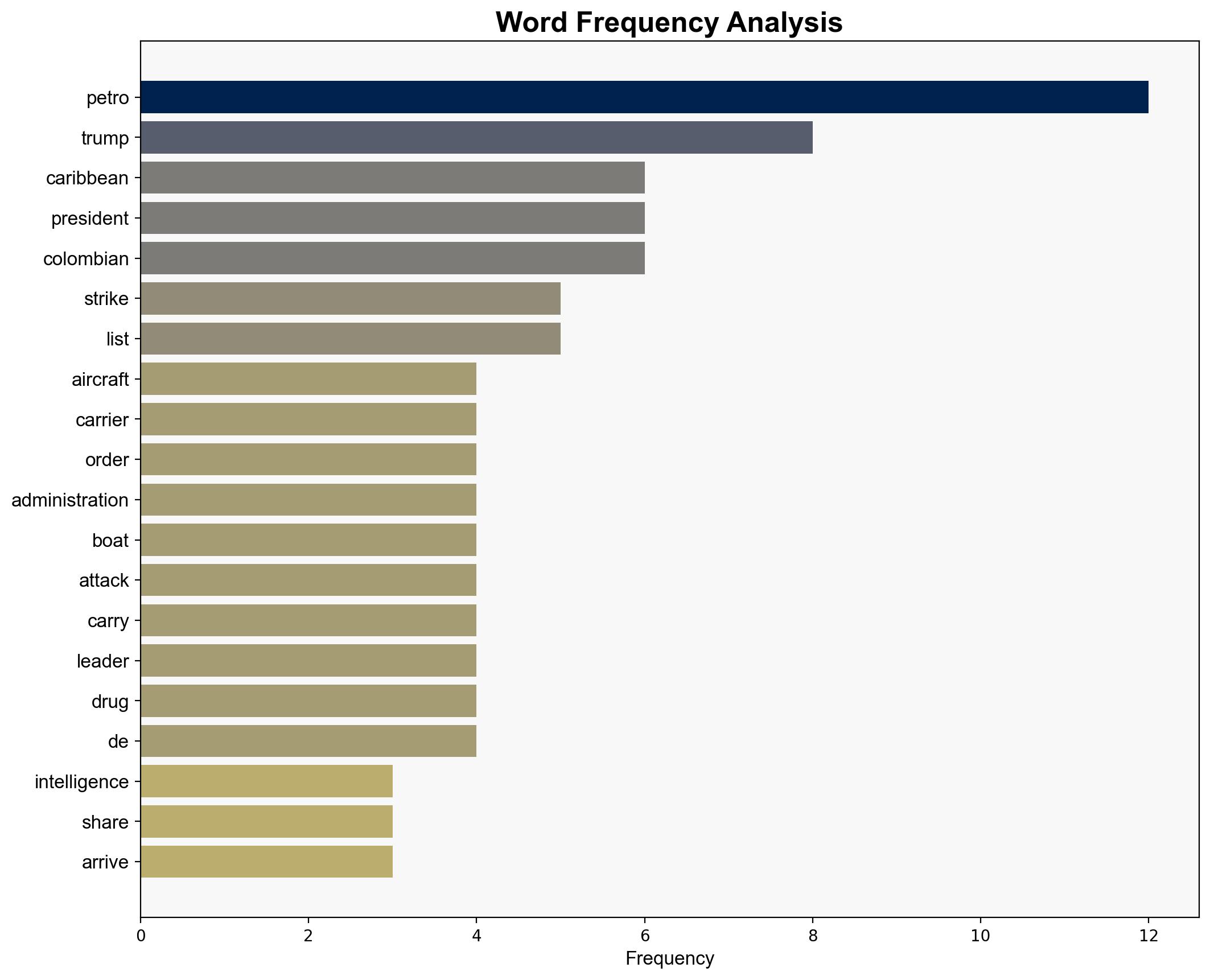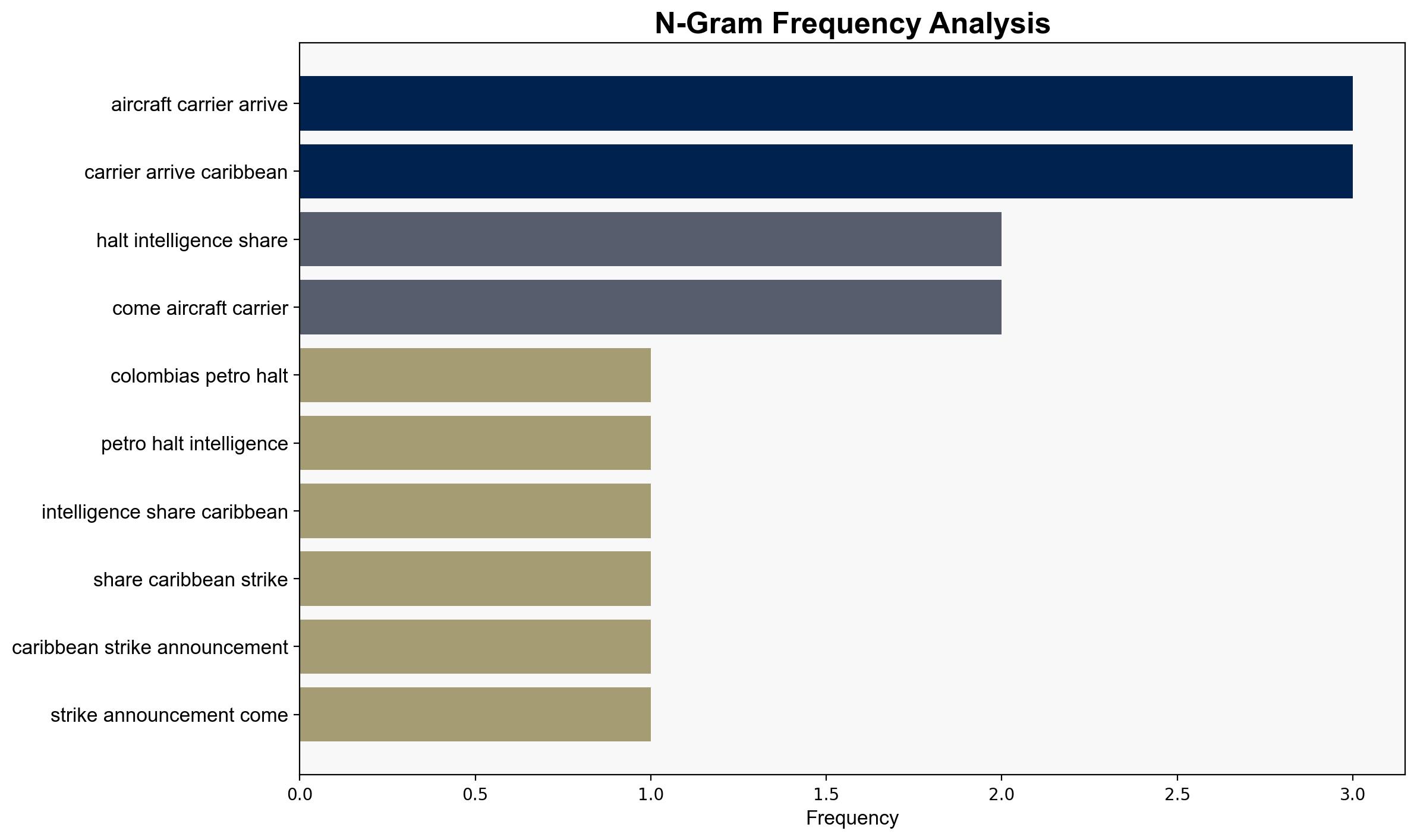Colombias Petro halts intelligence sharing with US over Caribbean strikes – Al Jazeera English
Published on: 2025-11-12
AI-powered OSINT brief from verified open sources. Automated NLP signal extraction with human verification. See our Methodology and Why WorldWideWatchers.
Intelligence Report: Colombia’s Petro halts intelligence sharing with US over Caribbean strikes – Al Jazeera English
1. BLUF (Bottom Line Up Front)
The suspension of intelligence sharing by Colombian President Gustavo Petro with the United States is a strategic maneuver in response to perceived aggressive military actions by the Trump administration in the Caribbean. This decision is likely to strain US-Colombia relations and could impact regional security dynamics. Confidence Level: Moderate. It is recommended that diplomatic channels be re-engaged to de-escalate tensions and address mutual security concerns.
2. Competing Hypotheses
Hypothesis 1: Petro’s decision is primarily a response to US military actions perceived as threats to regional stability, particularly in relation to Venezuela.
Hypothesis 2: The suspension is a strategic political move by Petro to assert independence from US influence and strengthen his domestic political standing by opposing US policies.
Hypothesis 1 is more likely given the immediate context of US military actions in the Caribbean and Petro’s public statements emphasizing regional security concerns.
3. Key Assumptions and Red Flags
Assumptions: It is assumed that the intelligence sharing suspension is directly linked to US military actions and not other geopolitical factors. Another assumption is that Petro’s actions are primarily motivated by security concerns rather than domestic political gains.
Red Flags: The presence of unconfirmed reports and potential misinformation regarding the nature of US military actions and their targets could indicate attempts at deception or misdirection.
4. Implications and Strategic Risks
The suspension of intelligence sharing could lead to a breakdown in cooperation on counter-narcotics operations, potentially allowing drug trafficking activities to increase. Additionally, the move could embolden other regional actors to challenge US influence, leading to a shift in regional alliances. There is also a risk of escalation if US military actions continue or intensify, potentially drawing in other nations.
5. Recommendations and Outlook
- Engage in diplomatic dialogue with Colombia to clarify intentions and address security concerns.
- Monitor regional reactions to assess shifts in alliances or increased tensions.
- Best Case: Diplomatic engagement leads to resumed intelligence sharing and strengthened regional security cooperation.
- Worst Case: Continued military actions lead to regional conflict and further breakdown in US-Colombia relations.
- Most Likely: Prolonged diplomatic tensions with intermittent cooperation on specific security issues.
6. Key Individuals and Entities
Gustavo Petro, Donald Trump, Nicolas Maduro, Armando Benedetti
7. Thematic Tags
National Security Threats
Structured Analytic Techniques Applied
- Cognitive Bias Stress Test: Structured challenge to expose and correct biases.
- Bayesian Scenario Modeling: Use probabilistic forecasting for conflict trajectories or escalation likelihood.
- Network Influence Mapping: Map relationships between state and non-state actors for impact estimation.
Explore more:
National Security Threats Briefs ·
Daily Summary ·
Methodology





